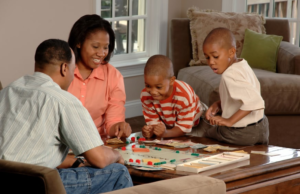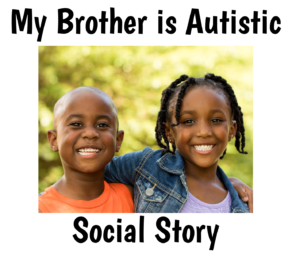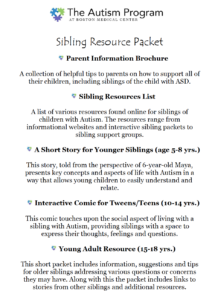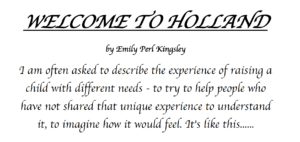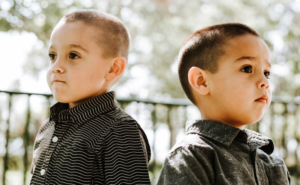
“That’s not fair!”, “How come they get that and I don’t!”, “Why are they always doing that!”, “You only pay attention to THEM!”
These phrases, and much more may be very familiar in any household, but can be especially difficult to answer in a household where there are siblings with different needs. And even if your child hasn’t verbalized these thoughts/emotions yet, they may still have these unsettling sentiments including fear and confusion growing inside them as they notice their sibling not communicating the same way they do or having behaviors they may see as strange or scary. Whether it’s a sibling who has a Speech Delay, Autism, ADHD, Anxiety or a multitude of developmental, learning or personality differences, explaining “Why” they are different and “What” the difference means can be a challenge for parents.
So where do you begin when trying to be supportive of both types of children? It starts with developmentally appropriate communication and transparency.
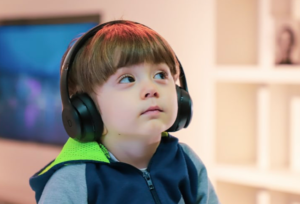
I have heard from many parents that they don’t feel comfortable talking about their child’s diagnosis because they want both children to feel and be treated “the same” and they are worried about labeling their child or others finding out about a diagnosis. Yet what we have seen is that children are often already aware they or their sibling is “different”. Not explaining it or ignoring the fact that there is a difference can lead to confusion, feelings of embarrassment and even frustration for all children involved.
In talking to numerous adults who were once small children with learning or developmental differences, the consensus has been that they wish their family had talked to them and told them earlier about their diagnosis. And that when they were eventually told about what it meant, it gave them relief to have an explanation for why they did things differently than others.
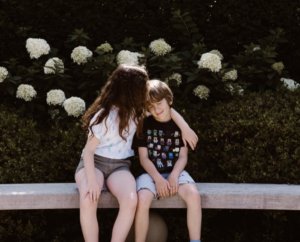
This may sound scary as a parent and not be something you feel you are ready for, but we encourage you be comfortable with “naming” it. We want our children to know that there is nothing wrong with them or whatever diagnosis they may have, and that we will love and support them no matter what. The first step in supporting them is showing them that we accept them ourselves. A label doesn’t define them, but it also isn’t something to be ashamed of. We can prove that to them by being open and honest with them and those close to them.
If your child needed glasses because they had a vision impairment would you be apprehensive about talking to them about it? If your child needed an inhaler because they had Asthma, would you be embarrassed if other people found out? Then why do we feel so nervous and apprehensive about openly talking about our child’s learning or developmental needs and difference? We all have strengths and weaknesses, and some of us need things that others don’t. Being equal (like the picture below) doesn’t represent our society and it’s needs because we are all different. Focusing on EQUITY helps us recognize, support and celebrate our differences.
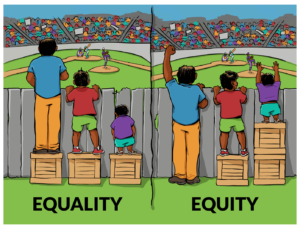
So how do you start these conversations? If possible or developmentally appropriate, we always encourage starting the conversation with the child with the learning or developmental difference themselves! Even if you think they won’t understand, kids are smart and intuitive. Even if they don’t show it to us, they internalize a lot more than we as adults think! Talking about and using terms with them that are about them at a young age will help expose them to the vocabulary, and be helpful as they grow and get older and are better able to understand the meaning of the words.
It is important to be open with their sibling(s) as well. There are many helpful resources and books that can help parents navigate these conversations.
Child Mind Institute Article-5 Ways to Support Siblings in Special Needs Families:
https://childmind.org/article/5-ways-to-support-siblings-in-special-needs-families/
My Brother is Autistic-Scripted Story
Sibling Resource Packet
Welcome to Holland (Story for Parents/Caregivers of children with Special Needs)
Book List:
-
Looking After Louis by Lesley Ely
-
Ian’s Walk: A Story About Autism by Laurie Lears
-
Andy and His Yellow Frisbee by Mary Thompson
-
My Friend with Autism by Beverly Bishop
-
Understanding Sam (Aspergers) by Clarabelle Van Niekerk
-
Sesame Street’s We’re All Amazing 1, 2, 3: A Story About Friendship and Autism by Leslie Kimmelman
-
I See Things Differently: A First Look at Autism by Pat Thomas
-
All My Stripes: A Story for Children with Autism by Shaina Rodolph and Danielle Royer
-
Leah’s Voice by Lori Demonia
-
My Brother Charlie by Holly Robinson Peete
-
Spaghetti is Not a finger Food (Aspergers) by Jodi Carmichael
-
Noah Chases the Wind by Michelle Worthington
-
Uniquely Wired: A Story About Autism and Its Gifts by Julia Cook
